Frontpage News (3259)
President Muhammadu Buhari has honoured the memory of Nigeria’s late Ebola doctor, Stella Adadevoh.
Written by Super User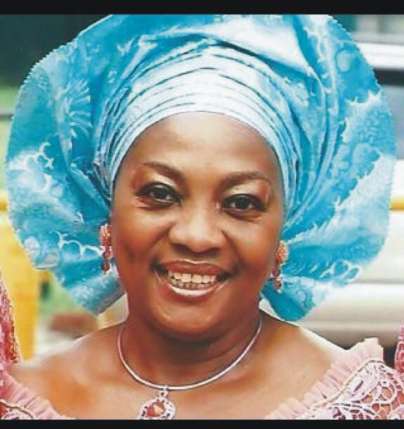 Dr Adadevoh died on August 19, 2015, after contracting the disease in a bid to keep index patient, Patrick Sawyerconfined to the First Consultant Hospital in Lagos.
Dr Adadevoh died on August 19, 2015, after contracting the disease in a bid to keep index patient, Patrick Sawyerconfined to the First Consultant Hospital in Lagos. 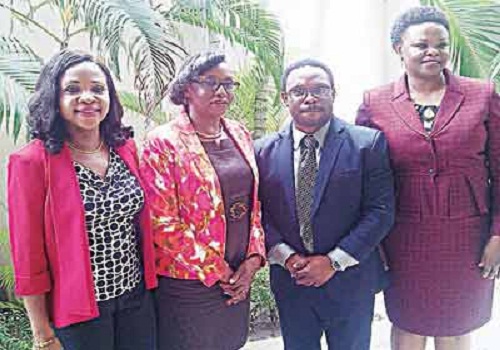 ORTHODONTISTS under the aegis of Nigerian Association of Orthodontists (NAO) have decried a situation where there are only 39 registered members and 4,600 dentists for a population of 170 million people. Top members of the Association in a chat with journalists in Lagos recently said the situation in Nigeria where there is one orthodontist to four million people is in contrast to the United States where there are about 9,000 orthodontists serving a population of 310 million people, which is about one orthodontist to 35,000 people.
ORTHODONTISTS under the aegis of Nigerian Association of Orthodontists (NAO) have decried a situation where there are only 39 registered members and 4,600 dentists for a population of 170 million people. Top members of the Association in a chat with journalists in Lagos recently said the situation in Nigeria where there is one orthodontist to four million people is in contrast to the United States where there are about 9,000 orthodontists serving a population of 310 million people, which is about one orthodontist to 35,000 people.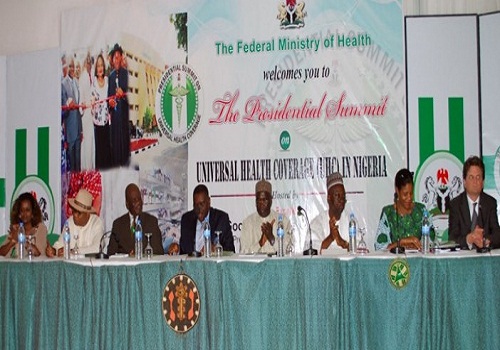 Faced with a plethora of petitions from members of the public alleging poor implementation of the National Health Insurance Scheme (NHIS), the National Human Rights Commission (NHRC) has called on the Federal Government to review the Scheme to address some noticeable challenges. The Rights Commission has disclosed its intention to invite the leadership of the scheme to explain why beneficiaries were experiencing difficulties in accessing medical services. Executive Secretary of the Commission, Bem Angwe, made the call yesterday in a chat with journalists at the Commission headquarters.
Faced with a plethora of petitions from members of the public alleging poor implementation of the National Health Insurance Scheme (NHIS), the National Human Rights Commission (NHRC) has called on the Federal Government to review the Scheme to address some noticeable challenges. The Rights Commission has disclosed its intention to invite the leadership of the scheme to explain why beneficiaries were experiencing difficulties in accessing medical services. Executive Secretary of the Commission, Bem Angwe, made the call yesterday in a chat with journalists at the Commission headquarters.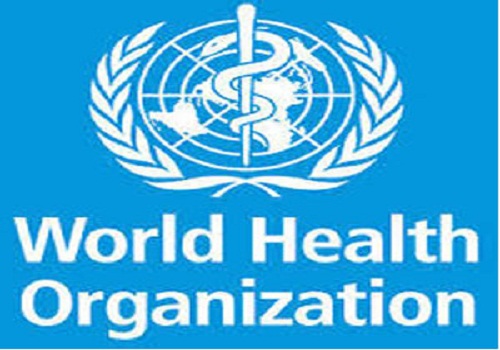 Health workers in Nigeria waste thousands of expensive malaria drugs prescribing them to patients who do not have malaria, a new research by experts at the University of Nigeria, Nsukka, and the London School of Hygiene and Tropical Medicine, has revealed. About 5,000 health workers working in public health facilities, pharmacies and drug stores from 40 communities in Enugu State were involved in the research. According to the study, patients are often given malaria drugs based on their signs and symptoms, contrary to standard recommendations by the World Health Organisation that patients’ blood should be tested for the presence of malaria parasites before confirmed cases are treated with Artemisin-based Combination Therapy.
Health workers in Nigeria waste thousands of expensive malaria drugs prescribing them to patients who do not have malaria, a new research by experts at the University of Nigeria, Nsukka, and the London School of Hygiene and Tropical Medicine, has revealed. About 5,000 health workers working in public health facilities, pharmacies and drug stores from 40 communities in Enugu State were involved in the research. According to the study, patients are often given malaria drugs based on their signs and symptoms, contrary to standard recommendations by the World Health Organisation that patients’ blood should be tested for the presence of malaria parasites before confirmed cases are treated with Artemisin-based Combination Therapy. Statistics from the World Health Organisation (WHO) have revealed that an estimated 1.5 million children around the world still die each year of diseases that could be prevented by vaccines that already exist just as 1 in 5 children still do not receive routine life-saving immunizations. According to a statement from the organization, people who delay or refuse vaccines for themselves or their children are presenting a growing challenge for countries seeking to close the immunization gap. In a special issue of the journal Vaccine, guest-edited by WHO and published last week, experts review the role of vaccine hesitancy in limiting vaccine coverage and explore strategies to address it. Vaccine hesitancy refers to delay in acceptance or refusal of safe vaccines despite availability of vaccination services.
Statistics from the World Health Organisation (WHO) have revealed that an estimated 1.5 million children around the world still die each year of diseases that could be prevented by vaccines that already exist just as 1 in 5 children still do not receive routine life-saving immunizations. According to a statement from the organization, people who delay or refuse vaccines for themselves or their children are presenting a growing challenge for countries seeking to close the immunization gap. In a special issue of the journal Vaccine, guest-edited by WHO and published last week, experts review the role of vaccine hesitancy in limiting vaccine coverage and explore strategies to address it. Vaccine hesitancy refers to delay in acceptance or refusal of safe vaccines despite availability of vaccination services.To privatise or not to privatise, that is the question now in Nigeria’s health sector
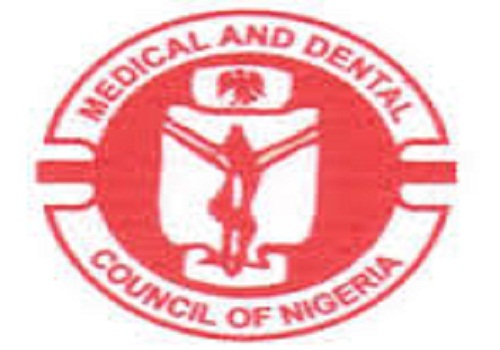 The furor over the proposed policy of Private Public Partnership (PPP) in the health sector cannot be wished away because of its likely implications for access to healthcare by majority of poor Nigerians. The Yayale Committee Report on disharmony in the health sector gave a hint of government’s preparedness to adopt the policy. The report calls for the privatisation of federal hospitals in the country through the system of PPP. In retrospection, we recollect that the debate over the suitability of the idea started since 2006 when the National Council on Health (NCH) purportedly looked into the idea and approved it initially under former President Olusegun Obasanjo’s administration and last year under the President Jonathan’s administration.
The furor over the proposed policy of Private Public Partnership (PPP) in the health sector cannot be wished away because of its likely implications for access to healthcare by majority of poor Nigerians. The Yayale Committee Report on disharmony in the health sector gave a hint of government’s preparedness to adopt the policy. The report calls for the privatisation of federal hospitals in the country through the system of PPP. In retrospection, we recollect that the debate over the suitability of the idea started since 2006 when the National Council on Health (NCH) purportedly looked into the idea and approved it initially under former President Olusegun Obasanjo’s administration and last year under the President Jonathan’s administration.Countdown to declare Sierra Leone Ebola free begins as last patient is discharged
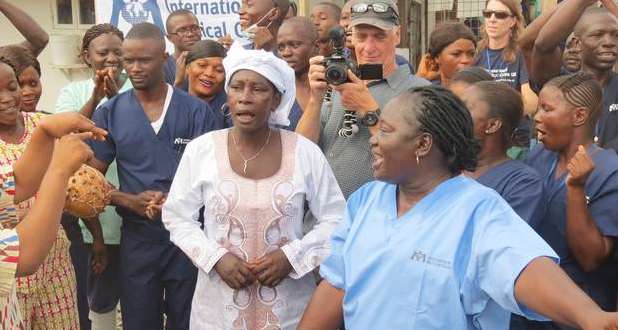 A 42 day countdown to declare Sierra Leone Ebola free started on Tuesday, 25th August 2015 following the discharge of the last patient, Adama Sankoh from hospital. The 42 days is double the incubation period of 21 days. The incubation period is the time between contraction and manifestation of symptoms in an infected person. The discharged patient contracted the virus after her son died from the disease late last month. She was presented with a certificate by President Ernest Bai Koroma following her discharge.
A 42 day countdown to declare Sierra Leone Ebola free started on Tuesday, 25th August 2015 following the discharge of the last patient, Adama Sankoh from hospital. The 42 days is double the incubation period of 21 days. The incubation period is the time between contraction and manifestation of symptoms in an infected person. The discharged patient contracted the virus after her son died from the disease late last month. She was presented with a certificate by President Ernest Bai Koroma following her discharge.
“The Ebola fight is not yet over – go and tell members of your community that” the president said. “Go back to your community and continue to live life as you used to.” The Independent reported that Sankoh, whose 23-year-old son contracted Ebola in the capital, Freetown, before traveling to his home village, thanked everyone who provided her care during her illness. She also vowed to be the last person infected in Sierra Leone with the virus. “Although my child died of Ebola I am very happy that I have survived today,” she said upon leaving the Ebola treatment centre in Mateneh village on the outskirts of Makeni, the president’s hometown.
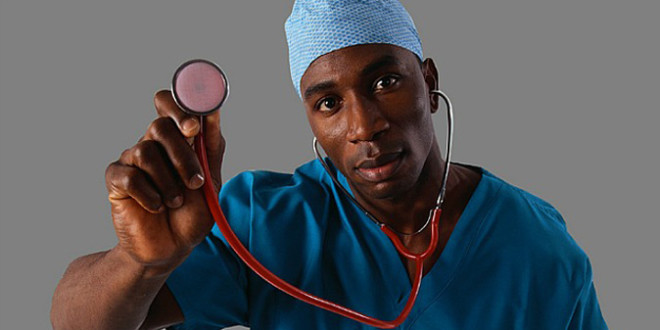 The federal medical center just recently returned to work after medical services were suspended for over three months. The cause was the faceoff between members of the house unions and the chief medical director. A similar situation appears to be unfolding at the Federal Medical Center, Owo, Ondo state as members of the Association of Resident Doctors (ARD) are demanding that the Federal Ministry of Health recalls Dr. Adediran Kolajo, the administrator of the hospital who is acting on interim basis. They are making the demand on the grounds of his victimization of her members.
The federal medical center just recently returned to work after medical services were suspended for over three months. The cause was the faceoff between members of the house unions and the chief medical director. A similar situation appears to be unfolding at the Federal Medical Center, Owo, Ondo state as members of the Association of Resident Doctors (ARD) are demanding that the Federal Ministry of Health recalls Dr. Adediran Kolajo, the administrator of the hospital who is acting on interim basis. They are making the demand on the grounds of his victimization of her members.
The association also wants the Ministry to investigate projects executed before and during the tenure of Dr. Kolajo. Dr. Isaiah Oke, the president of the association disclosed these at a press conference held inside the hospital. The association is also alleging that the hospital’s new management led by the CMD has declared to make life unbearable for her members and the hallmark of this undesirable attitude was the destruction of their lounge located inside the hospital complex.
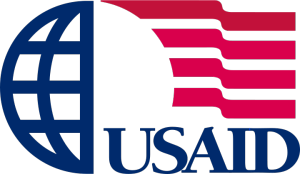 The United State Agency for International Development (USAID) on Thursday began the construction of its warehouse for proper storage of essential medicines and health products in Nigeria. Speaking at the Ground Breaking Ceremony in Lagos, its Director, Mr Mike Harvey, said the project was a state-of-the-art warehouse. The “Warehouse-In-a Box’’ is sited at the Federal Medical Store Oshodi, Lagos. “This warehouse will serve as a storage facility, one of those planned to be built in Lagos with the support of the U.S. and the Federal Ministry of Health in Nigeria.
The United State Agency for International Development (USAID) on Thursday began the construction of its warehouse for proper storage of essential medicines and health products in Nigeria. Speaking at the Ground Breaking Ceremony in Lagos, its Director, Mr Mike Harvey, said the project was a state-of-the-art warehouse. The “Warehouse-In-a Box’’ is sited at the Federal Medical Store Oshodi, Lagos. “This warehouse will serve as a storage facility, one of those planned to be built in Lagos with the support of the U.S. and the Federal Ministry of Health in Nigeria.
“This facility will support the country’s pharmaceutical supply chain, and once this is up and running, the warehouse will make sure that women, children and families in Nigeria get quality drugs. “It will also help to provide quality drugs in every part of the country,’’ Harvey said. He added that the warehouse would be funded by USAID and the Global Fund for AIDS, TB and Malaria. “The total fund for the construction would be five million dollars, with USAID providing four million, while Global Fund and the private sector will source the rest,’’ he said.
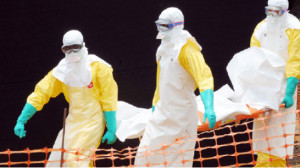 New research has revealed that Ebola can survive in detectable concentrations in wastewater for eight days – a finding that has implications for the disposal of contaminated liquid waste during epidemics and outbreaks. The study, by researchers at the University of Pittsburgh and Drexel University, both in Philadelphia, and the National Institute of Health (NIH), is published in the Environmental Science & Technology Letters. According to the latest World Health Organisation (WHO) situation report, there have been 28,005 confirmed cases and 11,287 deaths as a result of the virus since cases were first reported in March 2014.
New research has revealed that Ebola can survive in detectable concentrations in wastewater for eight days – a finding that has implications for the disposal of contaminated liquid waste during epidemics and outbreaks. The study, by researchers at the University of Pittsburgh and Drexel University, both in Philadelphia, and the National Institute of Health (NIH), is published in the Environmental Science & Technology Letters. According to the latest World Health Organisation (WHO) situation report, there have been 28,005 confirmed cases and 11,287 deaths as a result of the virus since cases were first reported in March 2014.
In their background information, the authors note that in the wake of the outbreak, there remained significant questions on the appropriate handling of virus-contaminated liquid waste and one of these concerns is the persistence of Ebola in wastewater. Studies have indicated that the virus can persist in survivors. For example, one study describes how viable Ebola virus was found in the eye of a survivor months after recovery. In contrast, there is limited data on the fate and transport of Ebola in wastewater collection systems.
More...
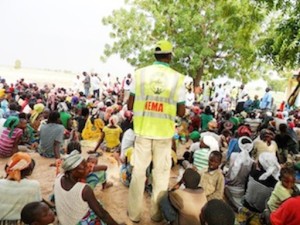 No fewer than 500 medical and health personnel in Borno are to be trained on to provide psychosocial support to Internally Displaced Person (IDP’s) in 17 camps in the state. Alhaji Sale Mene, the Executive Secretary of Borno State Primary Health Care Management Board (BPHCMB), stated this in an interview with the News Agency of Nigeria (NAN), in Maiduguri on Friday. Mene said the training was necessary to assist traumatized victims of Boko Haram to enabled them overcome the shock of their past experiences and return to normal life.
No fewer than 500 medical and health personnel in Borno are to be trained on to provide psychosocial support to Internally Displaced Person (IDP’s) in 17 camps in the state. Alhaji Sale Mene, the Executive Secretary of Borno State Primary Health Care Management Board (BPHCMB), stated this in an interview with the News Agency of Nigeria (NAN), in Maiduguri on Friday. Mene said the training was necessary to assist traumatized victims of Boko Haram to enabled them overcome the shock of their past experiences and return to normal life.
“Most of the IDP’s, especially women, have suffered much emotional harm, pain, trauma and shock. A lot of them have bitter experiences, while many have seen terrible things while in captivity. “Some of these women from Bama will tell you that they had been in the town for two years even while Boko Haram had captured the town.“We therefore have a lot of work to do. We need to build their confidence and give them the courage to move on. This is because some of them have lost everything.
Red Cross urges Nigerians to donate blood twice yearly
Written by Super User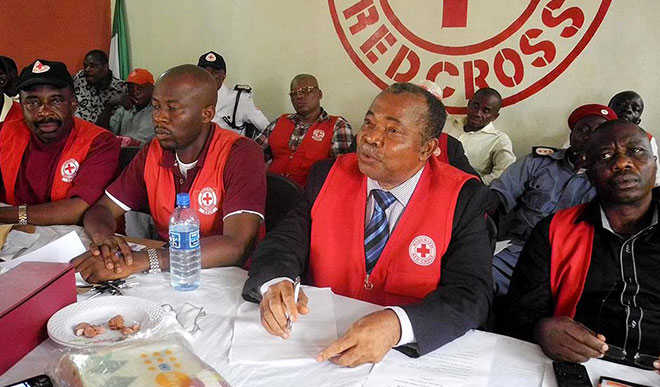 Vice chairman of the Nigeria Red Cross Society, Anambra State chapter, Prof. Peter Katchy has urged residents to imbibe the habit of donating blood twice a year in order to meet the blood requirement in the state.
Vice chairman of the Nigeria Red Cross Society, Anambra State chapter, Prof. Peter Katchy has urged residents to imbibe the habit of donating blood twice a year in order to meet the blood requirement in the state.
He made the appeal during an interactive session with newsmen in Onitsha, Anambra State following the shortage of blood to meet emergency health situations and hospitals’ needs within Anambra and the country. “One of the major Red Cross activities in Anambra State is Blood Donors Recruitment drive. Red Cross calls on the people of the state to develop the habit of engaging in voluntary blood donation as a way of life in order to enable the state and country meet the requirements of demand for safe blood transfusion services,” he said.
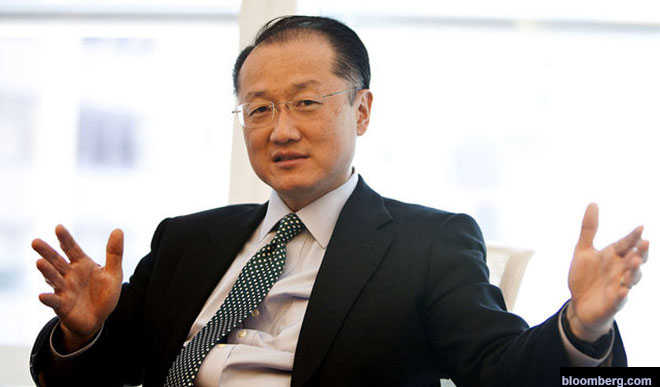 It was fun for me when I disembarked from Kenya Airways on Sunday 9th August 2015 in Nairobi because I met Mallam Kabiru Yusuf, the Publisher of Daily Trust and his family by chance. Between the airport tarmac and arrival lobby, we spent about 40 minutes and it was chats all through. For a curious reader, I and Mallam Kabiru had a story. I first met him in July 2002 at a cocktail party organized by the United States embassy in Abuja. We had a brief chat and its outcome is my starting a weekly health column in Daily Trust in October same year, thirteen years now.
It was fun for me when I disembarked from Kenya Airways on Sunday 9th August 2015 in Nairobi because I met Mallam Kabiru Yusuf, the Publisher of Daily Trust and his family by chance. Between the airport tarmac and arrival lobby, we spent about 40 minutes and it was chats all through. For a curious reader, I and Mallam Kabiru had a story. I first met him in July 2002 at a cocktail party organized by the United States embassy in Abuja. We had a brief chat and its outcome is my starting a weekly health column in Daily Trust in October same year, thirteen years now.
The rest is history. In our informal chat at the Jomo Kenyatta Airport I complained to him that the media didn’t report the recent visit of PMB to United States as it should be, as I expected to read, listen and watch robust commentary about the potential support that World Bank promised Nigeria, its implications to health sector and sustainable development, as well as a strong call by the media for prudent, transparent and efficient spending of the expected funds. And equally to match the World Bank funds with domestic counterpart financial resources.
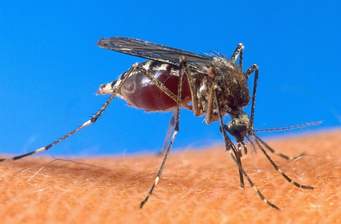 It is a rare medical feat and a welcome development
It is a rare medical feat and a welcome development
A new anti-malaria vaccine called Mosquirix was recently approved by the European drugs regulators. Projected as the solution to malaria, the mosquito-borne disease that kills one child every 30 seconds, about 3,000 children everyday worldwide and over 300,000 Nigerians every year, it is already being recommended as safe and effective to use on babies in Africa. If the trials prove to be successful, and the economics work, this will be a major breakthrough in the fight against a scourge that is without any doubts the biggest killer-disease on the continent.
The office of the United Nations Secretary-General’s Special Envoy for Malaria, Ray Chambers’, once drew attention to the fact that more than 90 per cent of the world’s malaria deaths occur in sub-Saharan Africa. That then explains why we believe that this vaccine could not have come at a better time, even though this is just the beginning of what could also be a long road before it would become readily available to the end-users.






